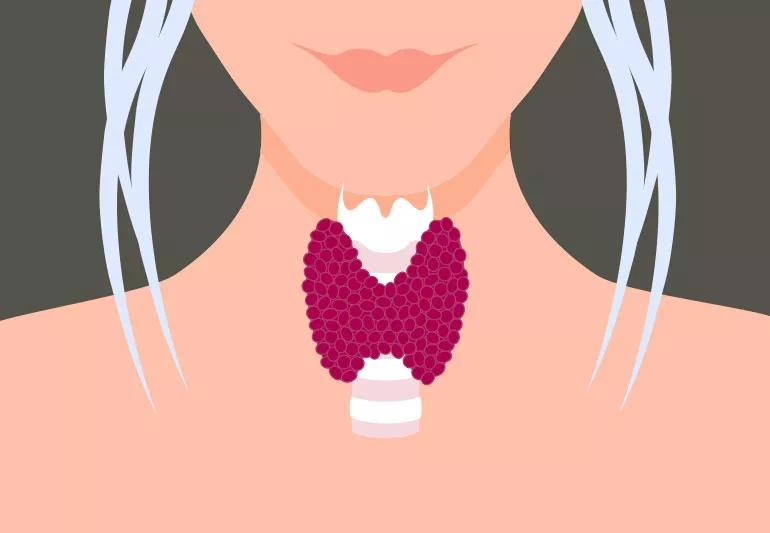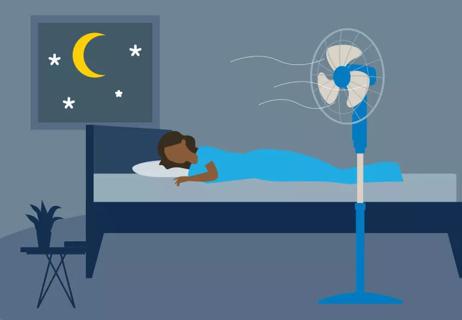Shared symptoms make it easy to confuse the two

You’ve been irritable, you’ve gained weight and you’re not sleeping well. If you’re a woman in your mid 40s or 50s, you’re probably thinking menopause is to blame. But don’t jump to conclusions. These may be signs of an overactive or underactive thyroid gland.
Advertisement
Cleveland Clinic is a non-profit academic medical center. Advertising on our site helps support our mission. We do not endorse non-Cleveland Clinic products or services. Policy
Other symptoms shared by menopause and thyroid disorders — fatigue, depression, hair loss and hot flashes — also make it tricky to tell the two apart, says endocrinologist Mary Vouyiouklis Kellis, MD.
Knowing what’s ailing you is the key to managing both conditions.
Thyroid disorders are more common among women. Women with a family history of thyroid problems or autoimmune issues (like type 1 diabetes) are at higher risk, says Dr. Kellis. And as we get older, those risks increase.
“Thyroid disorders are often diagnosed around the time of menopause, or between the ages of 45 and 55,” says Dr. Kellis. “Many women pass off their thyroid issues for menopause because the symptoms are similar and it seems like they’re at the right age.”
The good news: A simple blood test can help rule out a thyroid disorder. If the test doesn’t find irregular thyroid hormone levels, then menopause is probably your answer — and you’ll need to work with your doctor to manage it.
The thyroid is a butterfly-shaped gland located at the front of your neck. It produces hormones that help regulate your body’s metabolism and keep your brain, heart, muscles and other organs working properly. But sometimes it does too much or too little, as seen in:
Advertisement
Loss of memory, or “brain fog,” is another, often-overlooked, sign of a thyroid issue, adds Dr. Kellis. Though rare, losing hair around the ends of your eyebrows is another sign.
Over 20 million Americans have a thyroid disorder, Dr. Kellis says. In fact, thyroid problems are more common than asthma and chronic obstructive pulmonary disease. But since many of the signs are so common, it’s easy miss it.
Dr. Kellis recommends getting a blood test if you’re experiencing irregularities in weight loss or gain, slowed thinking, memory loss, or anything that makes your body “not feel right.”
Ask your doctor to check for thyroid lumps (nodules) or an enlarged thyroid (goiter) during routine physical exams. Both thyroid nodules and goiter can make your thyroid underactive or overactive. Few nodules or goiters cause pain, but larger one can hamper swallowing and breathing, or make you hoarse.
Effective treatments are available for most thyroid disorders, ranging from medications to surgery. The right diagnosis and treatment will help you manage a thyroid disorder and its symptoms, says Dr. Kellis.
Advertisement
Learn more about our editorial process.
Advertisement

Reaching menopause very early raises your risk of certain health conditions

Hormone changes can definitely leave you tossing and turning at night, but help is available

Losing menopause weight may take more effort, but it’s doable

A natural part of aging, there are typically three stages of menopause

Stay away from over-the-counter aids unless your doctor specifically recommends them

Lifestyle changes like diet modification and stress management can go a long way

If you’re feeling flushed and nervous, menopause could be the link

This ancient herbal supplement isn’t just a recent trend

Type 2 diabetes isn’t inevitable with these dietary changes

Applying a hot or cold compress can help with pain